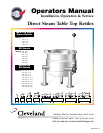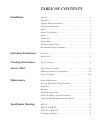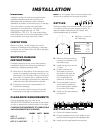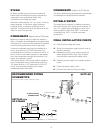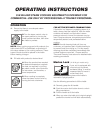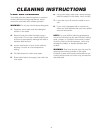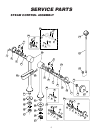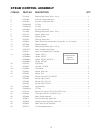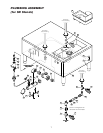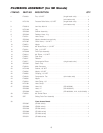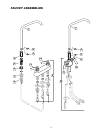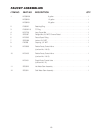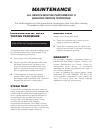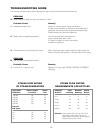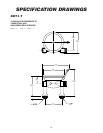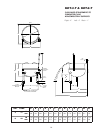
OPERATION
1. Ensure that there is an adequate steam
supply to the kettle.
2. Turn the steam control valve to
the open position by turning the
knob counter-clockwise, then allow
the kettle to preheat.
NOTE: When cooking egg and milk products, the
kettle should NOT be preheated, as products of
this nature adhere to hot cooking surfaces. These
types of foods should be placed in the kettle
before heating is begun.
3. Fill kettle with product to desired level.
4. When the product has reached
the desired temperature, regulate
the heat, as required, by turning
the steam control valve clockwise
for less steam, and therefore, a
lower temperature.
5. When cooking is complete,
close the steam control valve by
turning the knob clockwise.
FOR KETTLE/STEAMER COMBINATIONS:
If the boiler in a steamer is supplying steam to a
kettle, always heat the kettle first. After the kettle
contents are heated, and the boiler's steam
pressure returns to normal, the steamer may be
used. Pressure steamer compartments should be
sequentially started, and preheated before
cooking.
NOTE: As with cleaning food soil from any
cookware, art important part of kettle cleaning is
to prevent food from drying on. For this reason,
cleaning should be completed immediately after
cooked foods are removed. . Please read the
"Care and Cleaning" instructions for detailed kettle
washing procedures
Marine Lock (12 & 20 gal. models only)
If your unit is equipped with
a marine lock to prevent
accidental tilting, it must be
inspected daily to insure it
moves freely and
automatically locks into place when kettle is
returned to upright position.
Use the following procedure to tilt the kettle.
1. Securely grasp the tilt handle.
2. Push the marine lock button down to unlock
tilting mechanism.
3. Pull the handle to tilt the kettle.
4. When you return the kettle to its' original upright
position the marine lock will latch automatically.
MARINE
LOCK
OPERATING INSTRUCTIONS
CLEVELAND STEAM COOKING EQUIPMENT IS INTENDED FOR
COMMERCIAL USE ONLY BY PROFESSIONALLY TRAINED PERSONNEL.
3



